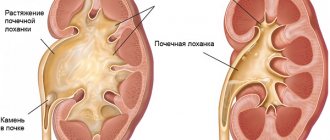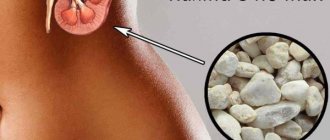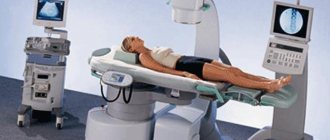Dysuria is a symptom of dysfunction of the excretory system, which is characterized by problems with urination. Dysuric disorders include pain and difficulty during bowel movements, incomplete emptying of the bladder and urinary retention. Pathology can occur in people of any age and gender.
Kinds
The pathological condition can be acute or chronic. The first type develops as a result of a disease, in most cases it manifests itself with severe symptoms, but is well treated if diagnosed in a timely manner.
The chronic course in most cases occurs in the absence of treatment in the acute stage, can develop in adults and children, is characterized by regular relapses and is difficult to treat.
In addition, experts distinguish several types of pathology depending on the cause of its development. There are dysuria caused by benign pathologies of the prostate gland, a disorder that becomes a consequence of urolithiasis, as well as a disease caused by acute purulent processes in the patient’s kidneys.
The first type occurs only in men, more often in adulthood or old age, the second can occur in patients of different sexes. The disorder against the background of acute purulent processes affects adults and children of different ages. It is worth noting that the latter type can be treated quite well and quickly, provided that it is diagnosed in a timely manner.
Depending on the nature of the symptoms, several types of dysuria are distinguished:
| Type of pathology | Peculiarities |
| Pollakiuria | With this disorder, there is abnormally frequent urination, which can persist during the day and at night, and is characterized by the release of a small amount of urine. The symptom may be present constantly or appear only during an exacerbation of the underlying disease |
| Strangury | This type of pathology is characterized by difficulty in the outflow of urine and the need to make efforts to perform the act. As a rule, this type of disease occurs in men who suffer from prostate adenoma, as well as in women with urolithiasis |
| Ishuria | One of the severe types of disorder in which the patient is unable to urinate with a full bladder. This form occurs in patients with benign or malignant pathologies of the urinary organs. Occurs much less frequently in children than in adults |
| Incontinence, enuresis | The most common type of disorder in children, as well as patients with mental and neurological diseases. In this case, urination occurs involuntarily, and the urge to empty the bladder is absent or not expressed. |
| Painful urination | This type of pathology is more often observed in adults with infectious and inflammatory pathologies of the bladder, urethra and kidneys. Accompanied by painful sensations at the beginning of the act, during it and after its completion |
In addition, there are uncomplicated and complicated forms of pathology. The first is considered less dangerous and can be treated faster, the second requires long-term and complex treatment, often leading to the transition of the pathology to the chronic stage.
Tips for preventing dysuria
Prevention of dysuria should begin in childhood. The main task of parents is to monitor the newborn and younger children. Intrauterine pathologies can manifest themselves both in the first days of life and during the period of growth, when the child begins to develop rapidly. Any deviations from the norm should alert you and the child should be shown to a doctor.
In adults, preventive measures should be aimed at a healthy lifestyle. It is also important to be attentive and careful about your body. It is recommended to do the following:
- exercise regularly;
- to live an active lifestyle;
- start the morning with exercise;
- visit a doctor regularly;
- perform Kegel exercises to strengthen the pelvic muscles;
- follow the principles of proper nutrition;
- adhere to the drinking regime.
Following these rules makes it possible to prevent the development of the problem and receive good preventative feedback. If suspicious symptoms occur, a timely visit to a doctor will help to recognize the pathology in time and begin quality treatment.
Stages and degrees
Dysuric disorders are a complex of symptoms in which there is a violation of various functions of the urinary system. Any form is pathological and occurs in several stages. In addition, it is worth noting that there are no differences in stages between children and adults, but some symptoms may or may not be present.
The initial stage is accompanied by unexpressed changes. The patient may report a slight increase in urination, discomfort, and the appearance of specific symptoms of a particular disease that caused dysuria. The symptoms for each patient differ depending on the underlying pathology.
The progressive stage is accompanied by a worsening of the symptoms of the underlying disease, as well as an increase in dysuric manifestations in the form of ischuria, pollakiuria or other symptoms. At this stage, complications may arise, as well as a deterioration in the patient’s general condition, and the development of inflammation if the symptoms are associated with infectious or inflammatory pathologies.
The disease progresses to an advanced stage if there is no treatment. The patient's condition worsens, complications from internal organs appear. All dysuric manifestations appear more pronounced, which leads to deterioration.
It is worth noting that symptoms in advanced stages may differ for each patient, which is due to the individual characteristics of the body and the underlying disease.
Symptoms
Among the external manifestations of the disease are swelling of the skin in the eye area, a change in its shade to very pale or grayish. In addition, swelling of the fingers, toes or all extremities is observed. The patient looks sick, weak, and spends most of the time in a horizontal position. It is worth remembering that such disorders are typical for adults.
Children usually do not change their behavior, remain active and mobile, and do their usual activities. If you pay attention to the child’s face, you may notice the appearance of dark circles under the eyes, as well as a slight change in skin tone to yellowish or grayish.
In addition, parents may notice that the child has begun to visit the toilet more often or has fewer bowel movements, depending on the disease. Preschool children may not get up at night if necessary, which parents notice in the morning while rearranging the bed linen. This indicates the development of incontinence or enuresis. There are usually no other manifestations in children.
Adults may complain of pain in the bladder and kidneys, burning and itching of the urethra, and genitals. In addition, they notice a change in the color and odor of the urine, as well as the appearance of foreign impurities in it in the form of blood, pus or sand.
This indicates the development of an inflammatory process or neoplasm. Men with prostate adenoma and prostatitis report difficulty urinating and increased frequency of urges at night. At the same time, the amount of urine excreted is reduced, and the patient constantly feels that the bladder is not completely emptied.
Women may talk about cutting, burning and pain at the beginning and end of urination. This in most cases indicates the development of an inflammatory process. Urination becomes more frequent, and the pain may decrease or intensify. A weak stream of urine in a woman may indicate the development of inflammation; in a man, it may indicate damage to the prostate gland.
Common symptoms include weakness, fatigue, and decreased performance. With the development of an infectious or inflammatory disease, an increase in body temperature, chills, muscle and joint pain, and decreased appetite are observed.
The patient is worried about severe thirst, headache, dizziness. Gradually, the condition worsens, the severity of dysuric disorders increases against the background of progression of the underlying disease.
If the disorders are provoked by mental disorders, an exacerbation of the condition, aggressive behavior of the patient or stupor is possible, which depends on the type of pathology.
Reasons for appearance
Dysuric disorders are the result of the development of any disease. Almost always, the syndrome acts as a concomitant deviation, but does not develop independently. Benign dysuria develops with prostate adenoma, the acute form in children and adults with pyelonephritis. Dysuria in adults often occurs with urolithiasis.
Causes of dysuric disorders
In children, pathology can also occur due to a nervous or mental disorder, after suffering severe stress, as well as as a result of congenital anomalies in the development of the urinary system.
In adults, the cause may be various factors:
- Infectious and inflammatory diseases of the bladder, urethra, kidneys, vagina. With urethritis, cystitis, pyelonephritis, the risk of developing dysuria increases.
- Sexually transmitted diseases, for example, gonorrhea, chlamydia, ureaplasmosis, trichomoniasis.
- Anomalies in the development of the organs of the reproductive system. A similar thing is observed in women with an incorrect location of the uterus.
- The period of pregnancy and menopause can also provoke dysuria in women.
- Endometriosis and endometritis at different stages of development.
- Pathological narrowing of the urethra for various reasons. This factor more often leads to the development of dysuria in men.
- Malignant and benign pathologies of the bladder and kidneys.
- Phimosis in men of different ages of traumatic origin or congenital anomalies.
- Neurological disorders characterized by impaired functioning of the nerves in the lumbar spine responsible for the innervation of the pelvic organs.
- Psychical deviations.
- Nervous disorders due to somatic diseases.
Similar reasons can provoke the disease in children and adults, which leads to dysuria of varying severity.
Diagnostics
Dysuric forms of the disorder must be diagnosed in a timely manner. This is considered the first step on the road to recovery.
For examination in children and adults, different methods are used:
- The survey and examination of patients is carried out free of charge in each clinic. During the procedure, the specialist clarifies the time of onset of symptoms, their nature, conditions of occurrence and probable causes. After this, he examines the skin, mucous membranes, measures body temperature and prescribes additional diagnostics taking into account the data obtained.
- Clinical urine analysis carried out in private and public clinics, in private the price is approximately 300 rubles. Urine is collected in the morning in a sterile container, after which it is sent to the laboratory. Specialists study the material and send the result to the attending physician. Based on the result, the doctor prescribes an additional examination. The test helps identify signs of inflammation, as well as abnormal cells that indicate the presence of kidney stones or neoplasms.
- A urethral smear is performed on both men and women. The second is also prescribed a smear from the cervical canal and vagina. As a result, abnormalities, pathological cells and pathogens of infectious diseases can be seen. The cost of a study in a private clinic is approximately 400 rubles.
- Ultrasound of the pelvic organs and kidneys is the most effective diagnostic method, in which even minor deviations can be seen. Diagnostics are carried out in rooms with special equipment; the cost is approximately 500-1000 rubles. depending on the extent of the diagnosis. The result helps to prescribe the correct treatment and detect the disease even at the initial stage.
- MRI is an additional and very effective research method that is prescribed to adults and children if there is no effect from the use of other methods. Helps identify abnormalities that are not visible during ultrasound diagnostics. It is carried out only in clinics that are equipped with special devices, the cost is approximately 1500-2000 rubles.
Ultrasound and magnetic resonance imaging are considered the most effective, but a comprehensive examination is always required.
Diagnosis of pathology
Careful diagnosis plays an important role because there are a large number of factors that can cause urinary disorders. Preference is given to non-invasive methods:
- Anamnesis collection. This point needs to be given special attention, since correctly asked questions and answers to them are the key to diagnosis in 80% of cases.
- General urine analysis. The doctor evaluates the external parameters of the collected urine, its composition and quantity.
- Ultrasound examination of the pelvic organs. With its help, neoplasms and urolithiasis are excluded.
In some cases, more complex manipulations are necessary. The most common are cystoscopy and complex urodynamic studies.
Prevention
Dysuria disorders are a secondary condition, therefore, to prevent it, it is necessary to follow the rules that will help prevent the development of pathologies that provoke dysuria.
It is important to prevent hypothermia, especially in autumn and winter, when the immune system is weakened. To increase the body's defenses, it is recommended to take vitamin complexes, as well as adjust the diet.
It is necessary to give up alcoholic drinks, cigarettes, and eat more vegetables and fruits.
In addition, it is worth playing sports or simply doing gymnastics daily, which will strengthen not only the external muscles, but also the pelvic floor muscles. A woman should master Kegel exercises, the essence of which is to tense and relax the pelvic floor muscles in order to increase their elasticity and prevent prolapse of the pelvic organs after childbirth.
Additionally, viral and respiratory pathologies should be treated in a timely manner to prevent complications from the kidneys and bladder. If symptoms of dysuria appear, it is important to immediately visit a doctor, undergo examination and treatment.
Preventive recommendations
Treatment of difficulty urinating in women is quite grueling, since in order to achieve a result, most often it is necessary to eliminate a whole range of factors. In addition, dysuric disorders bring significant discomfort to a person’s social life. As a preventive measure, you can follow several rules:
- Moderate daily physical activity. Avoid stagnation of blood in the pelvis. Women with sedentary jobs need to take short breaks to improve blood flow.
- Get rid of bad habits;
- Avoid frequent overflow of the bladder and do not retain urine. Urinate at least 4-5 times a day.
- Do not drink too much water at night, and start the morning with a visit to the toilet;
- Review your diet: eliminate dishes with excess spices and salt. Also, you should not eat a lot of fried and smoked foods.
- Every year undergo a preventive examination by a gynecologist and urologist for early diagnosis of pathology.
- Avoid sudden changes in temperature and stressful situations.
Treatment methods
For treatment, medications, folk remedies and other methods are used to eliminate symptoms and prevent complications.
Medications
The treatment regimen and list of drugs depend on the specific disease that provoked dysuria.
The most commonly used means are:
- Azithromycin is an effective antibiotic that is prescribed to children and adults for the inflammatory origin of dysuria, for example, cystitis, pyelonephritis, prostatitis, urethritis and other diseases. Take 1 tablet 2 times a day for 3-6 days. The drug is very effective, its cost is approximately 10 rubles.
- No-shpa – an antispasmodic medication that is prescribed to children and adults when the bladder muscles are tense and urination is impossible. For men, the drug is prescribed for prostatitis and prostate adenoma. The dosage is 2-6 tablets per day, depending on the age of the patient, take the tablets for 5-10 days. Price – from 180 rub.
- Omnic is a special treatment for prostate adenoma in men. The drug in the form of tablets acts on tumor cells, preventing their proliferation, which alleviates the patient’s condition. It should be taken for 30 days, 1 tablet per day. Experts note the high effectiveness of the drug and the minimal risk of complications. The price of the product starts from 700 rubles.
- Afobazole is a mild sedative that is used for patients with dysuria of neurological or mental origin. Helps eliminate anxiety, stress and normalize sleep, which helps relieve symptoms. Patients are prescribed 1 tablet 3 times a day, course duration is up to 2 weeks. Price – from 280 rub.
- Furosemide is a loop diuretic that is used for urolithiasis to stimulate the formation and excretion of urine and wash out sand and small stones from the kidneys. Patients are prescribed 1-3 tablets in the morning for 3 days. The product is considered effective, the price is from 50 rubles.
- Klimadinon is a herbal hormonal medicine that is prescribed for dysuria in women during menopause. Helps eliminate the disorder and improves the general condition of the patient, and is considered effective. Tablets are prescribed 1-2 tablets per day for 3-6 weeks. Price – from 400 rub.
- Canephron is a very effective natural remedy prescribed for urolithiasis, pyelonephritis and other pathologies. Capsules quickly improve the patient's condition, prevent complications, and eliminate dysuric disorders. You need to take them for 20-30 days, 2 pieces 2 times a day. The price of the product is from 340 rubles.
- Phytolysin is an effective herbal drug that is prescribed for pyelonephritis, cystitis, and urolithiasis. Helps destroy bacteria and remove sand from the kidneys and bladder. Prescribed in courses of 2-3 weeks with daily use of 3 tsp. pastes at regular intervals. Price – from 300 rub.
- Nimesil is a remedy for reducing body temperature and eliminating pain in inflammatory pathologies, for example, pyelonephritis, as well as urolithiasis, benign prostate hyperplasia. The drug is effective and is prescribed in courses of 5-7 days with daily use of 2 packets of the product after preliminary dissolution in 100 ml of water. Price – from 50 rub.
- Ibuprofen – an antipyretic and analgesic medication that is prescribed in syrup form to children in case of pyelonephritis or other inflammatory pathologies of the urinary system. A single dose is determined taking into account the patient’s age and is 2.5-7.5 ml. You can take the syrup no more than once every 8 hours and no more than 5 days in a row. Price – from 200 rub.
The dosage and duration of use depends on the severity of symptoms and may differ for each patient.
Traditional methods
Dysuric disorders are a rather dangerous disorder, so they are not treated with folk remedies. However, some recipes help alleviate the patient's condition. It is worth remembering that children cannot be treated with such compounds.
A decoction based on horsetail has a diuretic and anti-inflammatory effect. You can prepare it from 1 liter of water and 20 g of dry raw materials, cook for 10 minutes, leave for 2 hours. After this, filter the composition and take 50 ml 3 times a day. Course duration is up to 10 days.
Chamomile infusion has antiseptic properties and helps eliminate signs of inflammation. For 500 ml of water, take 5 g of dry herb, cook for 3 minutes, leave for at least 1 hour. Divide the filtered mixture into 2 parts and consume throughout the day. Repeat for 10-14 days.
Such recipes are considered effective, but they can only be used after consulting a doctor.
Other methods
Additional methods include electrical stimulation of the pelvic muscles, as well as surgery. As a rule, the methods are used in cases where dysuria is the result of muscle weakening, and incontinence worsens, and the risk of infection increases.
Electrical stimulation is carried out for 10 minutes. The muscles are exposed to low-frequency electric current, which helps tone the fibers. The course consists of 10 sessions with a frequency of 3-4 days. The method is effective and safe.
Surgery is usually performed in cases of traumatic origin of dysuria, when the bladder, urethra or pelvic floor muscles are damaged. The essence of the manipulation is the surgical restoration of damaged tissues, followed by a long course of rehabilitation. It is performed under general anesthesia and is considered a very effective method. As a rule, after recovery the disorders disappear.
Solutions to the problem
The choice of treatment regimen depends on the severity of symptoms and the severity of the pathological process, as well as on the causes. The main goal of treatment is to fight infection, relieve pain, and eliminate discomfort when urinating.
Conservative approach
Traditionally, at the initial stage, it is recommended to treat urinary dysfunction using methods that do not involve surgery.
These include:
- medications to eliminate the infection that caused dysuria;
- for nervous disorders - consultation with a psychologist, prescription of anti-anxiety and sedative pills, strengthening the nervous system.
- correction of nutrition and drinking regime both in case of insufficient urine and polyuria.
- training the perineal muscles, aimed at strengthening them;
- for neurological reasons, taking medications that regulate the functioning of the urinary organs.
- in some cases it is necessary to install a urethral catheter;
- establishing a urination regime, training the muscle layer of the bladder;
- consultation with a gynecologist to correct hormonal levels.
- physiotherapy to strengthen the muscles of the perineum and restore their lost functions.
Surgical treatment
This radical method is used to stop the influence of the factor that causes urination problems. The operation may involve removing a tumor, stones, or adhesions. In older women, there are situations where the intestines, vagina or uterus prolapse beyond the genital opening, which entails concomitant disorders in the form of dysuria. Surgical intervention solves the main problem, fixing the prolapsed organs in their place, dysuric phenomena disappear. If there are congenital defects of the urinary system, they are corrected surgically.
Alternative therapy
Reviews about such treatment methods are quite mixed. But sometimes the cause of urinary dysfunction is a short-term muscle spasm, which can be relieved at home using traditional medicine:
- Juniper fruit. They can be consumed in any quantity. They promote active urine production and also have an anti-inflammatory effect.
- A decoction made from birch leaves. Pour boiling water over two tablespoons of dry leaves, then wait about half an hour to cool. You need to drink the resulting decoction one glass per day.
- A powder made from walnut leaves and bark has proven itself. You need to mix them in equal quantities, then take a teaspoon about three times a day, washing down the powder with boiled and warm water.
Possible complications
Lack of timely treatment and ignoring symptoms certainly leads to complications that depend on the underlying disease.
The most common complications:
- Formation of large stones in the kidneys with subsequent blocking of the ureters.
- Spread of the infectious process to nearby organs.
- Transition of pathology to the chronic stage.
- The entry of microorganisms into the blood and the development of general blood poisoning.
- The transition of a benign neoplasm to a malignant one, if the cause is prostate adenoma in a man.
Such consequences can be prevented with timely treatment of any abnormality in the urinary system.
Dysuric or urinary disorders can appear in patients of different ages as a result of various inflammatory, infectious or benign diseases. This condition provokes many symptoms that worsen the patient's quality of life. During treatment, special attention is paid to the underlying cause, which helps eliminate the disorder in a short time.









